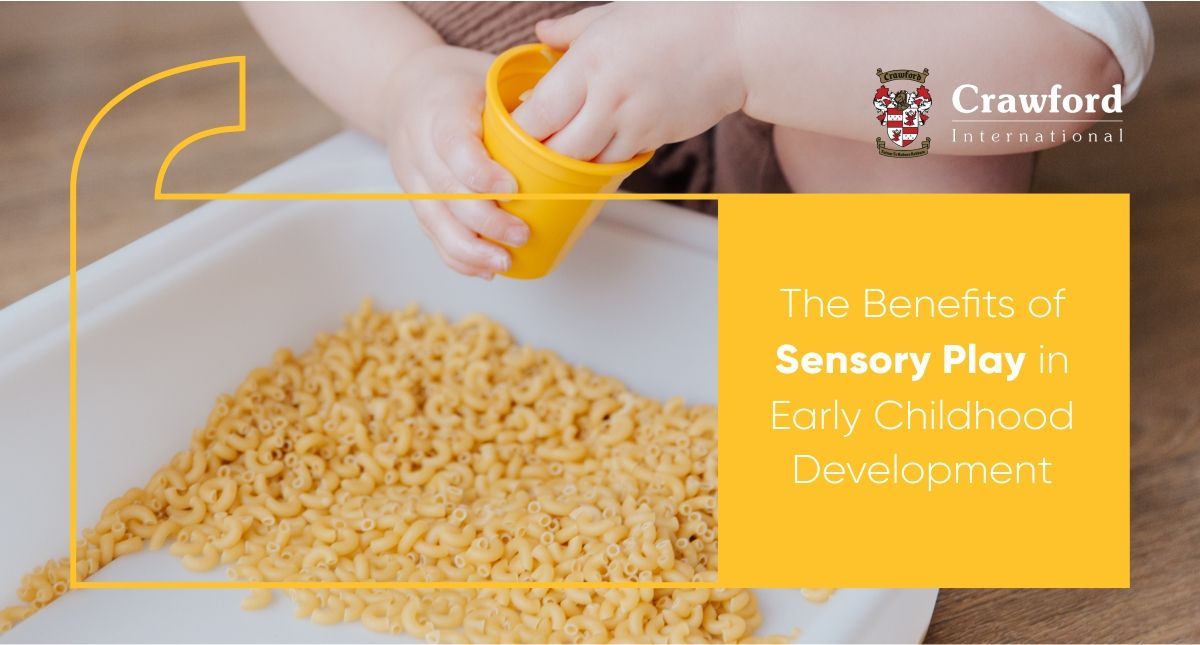Benefits of sensory play
May 19, 2023
Engaging your child’s senses opens up a world of learning.

In early childhood, play is literally a child’s job. It’s how they engage with and learn about the world around them, and they use their bodies in this learning. When you stimulate a child’s senses in play – touch, smell, taste, hearing, and sight you take that learning, and their holistic development, to the next level.
The importance of sensory play
Think of how you learn new skills and retain information. Simply reading through reams of text isn’t all that effective. But when you make notes or mind maps, listen to white noise or classical music, or use techniques like mnemonics, learning suddenly becomes easier. This is because we retain information when using our senses.
Our children are the same. Hands-on activities that include all or some of their senses aren’t just about the fun – sensory play is a key element in a child’s cognitive, physical and emotional development. It instils a curiosity and love of learning. And you don’t always have to crack open the tubs of coloured rice – even something as seemingly simple as riding a bike, playing in a bubble bath, and dancing to music are examples of sensory play.
Sensory play also engages two lesser-known systems – the vestibular and proprioceptive senses. Proprioception is all about having an awareness of your body. When your child strengthens this sense, they’re learning where their different body parts are in relation to each other. They also learn how much force to use when jumping and throwing, picking something up, or holding an object. When it comes to balance and movement, the vestibular sense is at the forefront.
Benefits of sensory play
● Fine motor skills are important when it comes to any task that uses the small muscles in your hands and arms. By exploring shapes and textures through sensory play (think of playdough, threading beads, etc), your child is learning about the tactile world and giving these small muscles a workout and learning how to work in a coordinated manner with the eyes. Well-developed fine motor skills are needed for things like tying shoelaces, brushing teeth, writing, cutting, etc. These skills also have an effect on concentration.
● Gross motor skills are engaged when your child uses the large muscle groups in their legs, arms and core. Things like running, jumping, and even sitting are developing these skills. What’s more, gross motor skills affect fine motor skills – if a child finds it difficult to maintain posture while sitting, they may also find it difficult to write.
● Cognitive development gets a huge boost from sensory play and the multitude of experiences it offers your child. By engaging multiple senses in learning, the nerve connections in the neural pathways of your child’s brain are strengthened. This encourages memory skills, problem-solving, creativity, an ability to complete complex tasks, a curiosity to find out how things work, and the ability to analyse results. Know that by moving those rice kernels from one container to another, your young child is laying the foundation for maths, science, and more.
● Language skills are involved even if your child isn’t talking yet. By immersing themselves and their senses, they are learning about their world and what things in it are called. Once they’re talking, there are many opportunities for them to practice communicating. You can guide them to describe what they’re doing, how it feels, and how they’re doing it.
● Social skills are developed even if your child isn’t yet in the stage of playing with others. In group sensory play, children are watching how others are doing things, they’re figuring out social bonds, interactions, and hierarchies. There’s also social learning when you talk to your child about the activity or while they’re busy.
● Emotional development shouldn’t be underestimated. Firstly, sensory play can be very soothing. Your child may be able to work through difficult or intense feelings simply by engaging in this kind of play – worry, frustration, overstimulation. Resilience, tolerance, confidence, and adaptability are other emotional benefits of experiencing new and different things, adapting to new situations, and figuring out solutions for challenges.
When it comes to incorporating sensory play into your child’s routine, you can start from birth. You can adapt sensory activities for every age and stage of play in your child’s developmental journey. Read more about these play stages here.












